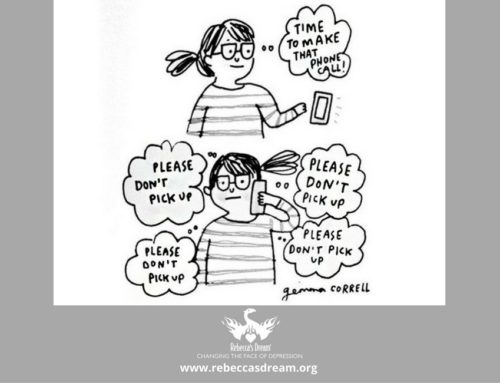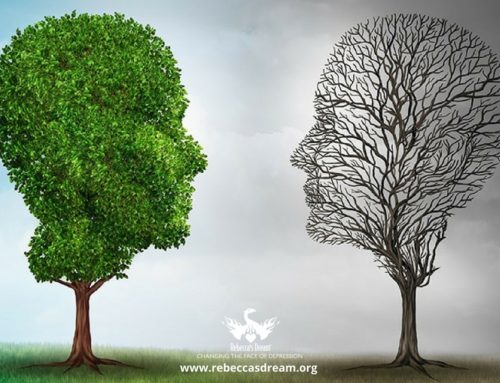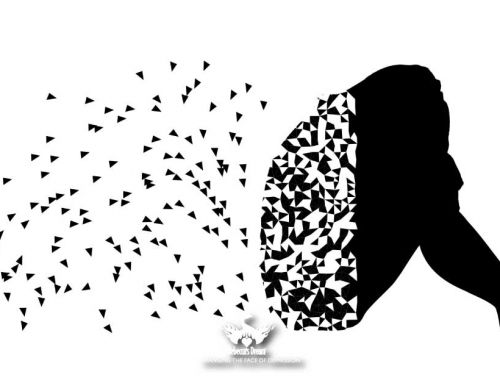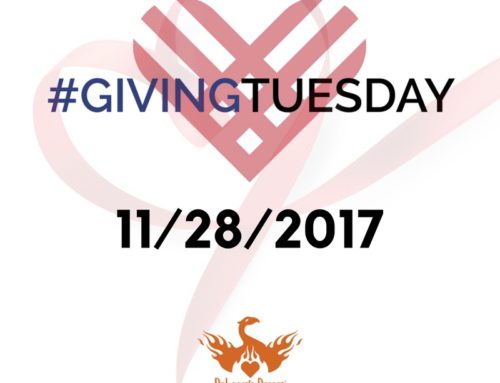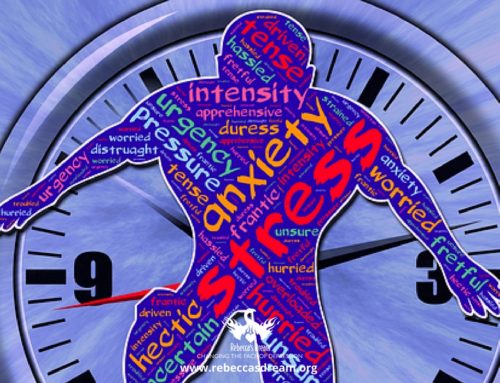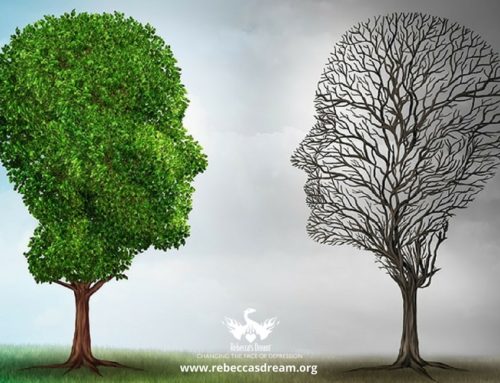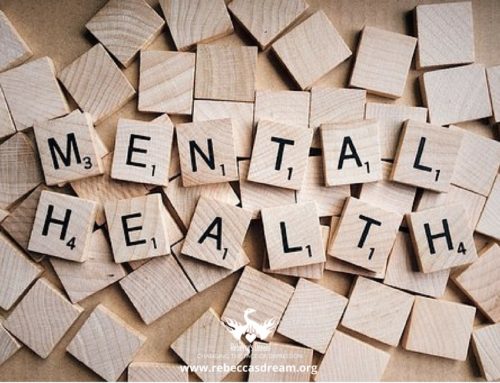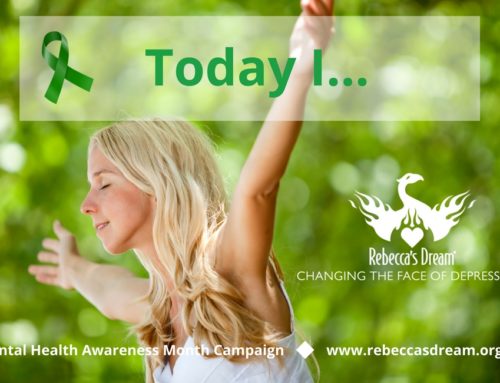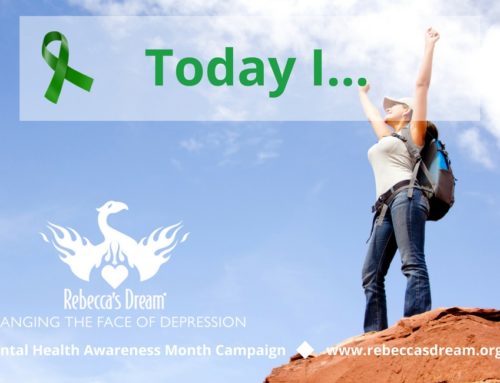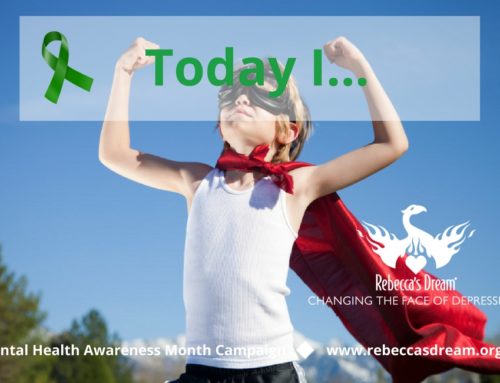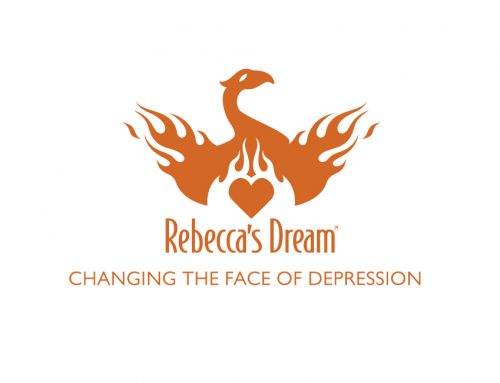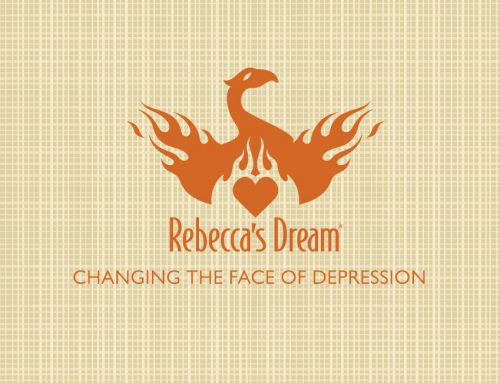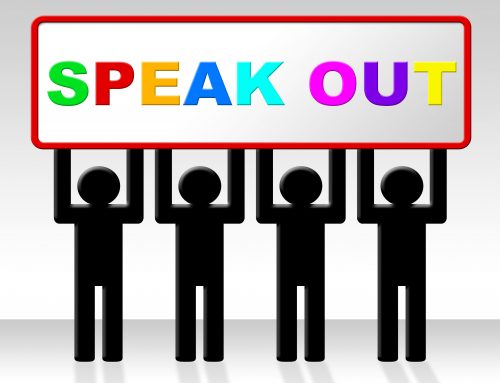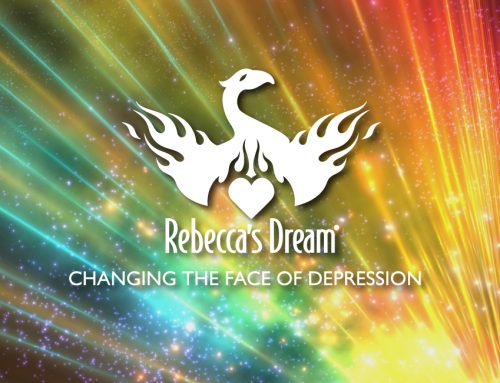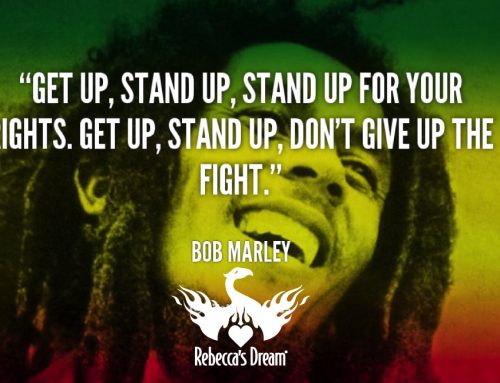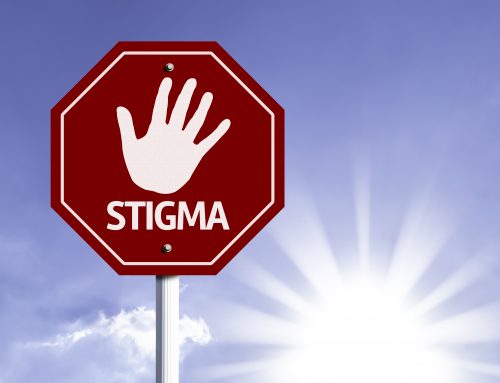“My mind’s response was to numb itself to these feelings by emotionally shutting down,” he says.
For others, such as lawyer Dan Lukasik of Buffalo, New York, and business owner Loralee Hutton of Vancouver, British Columbia, it was a relief. “I finally had a medical diagnosis for what was wrong with me,” Lukasik says. “It wasn’t just ‘in my head.’ I needed medical attention and medication.”
Unfortunately, many people neglect to face depression head on and seek help, or they make decisions when they’re first diagnosed that they later regret. To help others avoid the same mistakes, we asked six productive, engaged people who are living with depression what they’ve learned about managing their condition, and what strategies and advice they’d like to pass along.
1. Take Your Diagnosis Seriously — Don’t Blow It Off or Downplay It
One of the biggest regrets Hutton had after her diagnosis was pushing it aside as insignificant because of other things she had going on in her life, including the death of a family member and a diagnosis with another illness. “I wish I had taken it more seriously,” she says.
Independent journalist Greg Harman of San Antonio, Texas, still struggles to make his mental health a priority.
“Until all my symptoms sort of collided into one giant mess, forcing me to take my recovery and wellness as the life-or-death matter that it is, I really just drifted with the diagnosis,” says Harman, author of After Depression: What an experimental medical treatment taught me about mental illness and recovery. “I was only able to push my depression to the front of my to-do list when it came close to killing me. It shouldn’t take that much for anyone.”
Not neglecting your condition also means complying with treatment recommendations, says Moe Gelbart, PhD, a psychologist at the Torrance Memorial Medical Center in Torrance, California. “It’s quite common for patients to resist taking medication,” Dr. Gelbart says. “This could be due to side effects, like weight gain and decrease of sexual libido, or just to a sense that if they take medication, they’re admitting something is wrong with them.”
He advises people to accept depression as an illness, not as a sign of weakness or defect — something Harman echoes as well. Managing depression is not unlike managing any other chronic illness, such as diabetes, Harman has learned. “These are typically life-long illnesses that simply require good maintenance,” he says. “Without kind attention, either one can end very badly: Both can be fatal.”
2. You’re Not Alone, So Seek Help and Support
“You are not alone,” each person interviewed says.
The reality, says Harman, is that “depression is an indiscriminate mother.” It affects all different kinds of people: “the pretty ones and the not-so-pretty ones, the quick and the slow, the rich and the poor.”
Yet everyone interviewed says they battled loneliness, and emphasize the importance of support networks.
“Feeling completely alone was a huge problem for me,” Hutton says. “I started to believe I was worthless.” Going back to school helped ease her symptoms because she could focus on something new. “It didn’t completely go away, and I’ve had many setbacks since, but a new direction in life pulls me back from the worst of it.”
Seeking help sooner might have helped Everyday Health columnist Therese Borchard avoid a breakdown that lasted two years after her second child was born, she says. Lukasik says he was “profoundly lonely” and would have benefited from a support group sooner.
Not having a local community should not keep you from finding a support network in the age of social media, suggests Claude, who established a depression support website. He found a “wonderful community of mental health advocates” on Twitter who offered substantial support. Borchard also started the Beyond Blue Foundation, a nonprofit organization that provides hope and support to people with treatment-resistant depression and other chronic mood disorders.
3. Be Gentle and Compassionate With Yourself
“I wish I had been kinder and gentler to myself and learned self-compassion, instead of beating myself up for being depressed in the first place,” says Borchard.
Others echoed her words of wisdom. “Don’t be too hard on yourself when you have feelings of despair or of being overwhelmed,” Hutton says. “Believing that you’re wrong or bad can take over pretty quickly.”
It helps to acknowledge that life is hard with depression or not, Harman says. “Gentleness is the only way to live through that hardness.”
In fact, Claude suggests self-pampering and relaxation activities, such as massage, as ways to manage depression. An eight-week mindfulness meditation course has also helped him manage his anxiety.
4. Get Treatment — But Don’t Limit Your Treatment Options
The most common regret Gelbart hears from patients is that they didn’t seek help sooner.
“I wish I hadn’t delayed going on medication,” Claude says. Stigma played a role in his reluctance to accept his diagnosis, but once he learned of a family history of depression and anxiety, he accepted the need to take medication. “I knew it was the right decision a few weeks later when my daughter came to me one day completely out of the blue and said to me, ‘I love the new Daddy.’”
Yet others, such as Borchard, regret not exploring different options before taking medication.
“In hindsight, I wish I had exhausted the holistic ways of treating depression before I grabbed for medication — and learned how much other underlying issues were causing depressive symptoms — because the side effects of being on medication for so long have really started to compromise my health,” she says.
Among other treatment options are psychotherapy, mindfulness meditation, and exercise.
“There has been much research on the positive benefits of exercise for depression, with many studies indicating that it’s just as successful as medication,” Gelbart notes. Mindfulness and meditation have also shown an effectiveness similar to that of medication, though Gelbart emphasizes that the strongest responses usually include a combination of psychotherapy, medication, and exercise.
As a Catholic, Lukasik finds the quiet reflection during weekday Mass helpful, as well as journaling and volunteering. “Depression will drag you into a dark pit with no ladder out if you let it,” he warns.
5. Educate Yourself and Become Your Own Advocate
“You are your best advocate and responsible for your recovery, so arm yourself with information,” Claude says. He recommends consulting “Doctor Google,” but with a grain of salt — and always consult a medical professional before trying different strategies to manage your symptoms. “There’s no cure, and there’s no magic bullet to treat depression,” he says.
It may also help to be prepared to encounter stigma, but don’t let it defeat you, says Lukasik.
“After I was diagnosed, I expected compassion and understanding, but more often than not, I was told to ‘snap out of it’ or be more ‘grateful’ for what I had,” he says. At first he absorbed this negativity, feeling misunderstood and shunned, but he overcame it by going public. Writing about it, forming a website for lawyers with depression, and producing a short documentary “gave me a voice to speak up about what depression really is,” he says.
6. Invest in Healthy Lifestyle Changes
If possible, building a business or work environment that allows flexibility and downtime can help you incorporate self care into your life, Hutton says. If restructuring your life that way is not possible, making other changes usually is.
“Work on things you have control over, like balancing your life in relation to work, engaging in exercise, eating better, stopping use of substances like alcohol, marijuana, or other drugs to self-medicate, reaching out to those you are close to and increasing your communication, and engaging in more pleasurable activities,” Gelbart says.
Making those changes is not easy, especially for someone with depression, Claude says, but it’s important.
“If good eating habits, regular exercise, and sufficient and quality sleep aren’t currently part of your lifestyle, you’ll need to dig deep to find the motivation and energy to incorporate these elements into your recovery approach and make lifestyle changes,” Claude says.

















